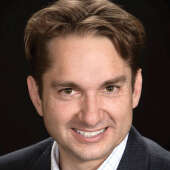What do the Olympics and presidential politics have in common?
The Olympics snuck up on me this year. In years past, we've at least taped the opening ceremony to watch at leisure. The extravaganza often is a charming way to learn about what the host country thinks is important to share with the world. Not this year. We missed it. Maybe it's because we just don't watch TV as much as we did. Or, when the TV is on, it's to watch something other than broadcast -- for example, youtube or Netflix -- and we missed all the advance promotion.
But my daughters love watching the Olympics, and my wife is a big fan of figure skating. This sometimes leads to conflict: the girls are eager to watch the snowboarders fly through the air in incredible, dangerous spins. My wife just wants to skip forward to the next skating event. The aspect I love best is that we are all together, each with her (or his) opinion, happy to engage with others.
The Olympics also sparks opportunity to delve into science: What is lactic acid, why does it build up in the legs of speedskaters during a race, and why does it cause them to eventually slow down? In the slalom ski events, why do they ski so close to the flags? What is the purpose of "sweeping" in curling? Just what is doping, and why is Russia not officially competing although some of its athletes are?
My wife is proud of her Russian and Belarusian heritage (as am I), so the doping discussion is a difficult one. She likes to respond to evidence about the elaborate scheme to cheat at Sochi by the Russian Olympic committee with comments about Lance Armstrong and other Americans who later admitted serious transgressions, Olympic athletes or not. Mark McGwire's name even came up.
The problem of cheating, actually, is all around us right now, especially in politics. It's a shame, instead of arguing ideas and evidence, political ideas collide in attacks of personal and moral destruction divorced from policy development. Everything is weaponized according to political advantage. Whom do we trust to provide straightforward and honest information? Clearly, both the Republican and Democrat leaders of the House Intelligence Committee can't both be right. How about the leaders of the FBI? The Obama State department? Donald Trump? Comeyclintonbannonpinocchio? It all runs together. Public trust is on shaky grounds, no one appears to have clean hands.
Of course, Russia, too, is in the news with American politics, most recently with special prosecutor Bob Mueller's indictment of 13 Russians and three Russian companies for meddling in the 2016 presidential election. Funny thing is, much of what Mueller charged the Russians with doing had previously been reported, including in Russian media. Blockbuster it is not. Despicable, however: yes. Curiously, the Russian "troll farms" appear to have practiced their techniques of sowing discord by promoting racial protests and fabricating hoaxes at the University of Missouri in 2015, according to a story in the journal Strategic Studies Quarterly.
Think for a moment: Russian agents seek to create discord in America by fabricating "news," then exploit social media to create momentum for the spread of their falsehoods. One solution: Read a newspaper. Seriously. Read the news in a form where decisions about its worth aren't just determined by algorithms that privilege popularity -- robot fake or uninformed legitimate. Really: Facebook tells you something is important because other people like it (or want to believe it), not because it's evidenced. And Facebook does that, because it can then sell more ads around the content. Civic or social responsibility outside of pop cultural (liberal) branding is not Silicon Alley's strong suit.
Thankfully, the Olympics have provided some glorious moments, as it always does. How amazing was it to see the Norwegian skiathlon Simen Krueger slip and fall in the first lap of a 19-mile race, pole breaking and competitors landing on top, only to get up, pass 63 other skiers and win? (The feat reminded me of Eric Liddell in "Chariots of Fire." Don't know what I'm talking about, check out the film; it's one of the best all-time, an Academy Award winner nominally about the 1924 Olympics that celebrates religion and humankind's noble spirit.) Or, the heart-pounding drama of watching Shaun White rise epically to the challenge on his last try to snatch victory in one of the most competitive half-pipe competitions in history -- and to do it only four months after a serious snowboarding accident that caused him to question whether he wanted to continue competing. Then there was Chloe Kim, the American darling of these Pyeongchang Olympics. Or Marai Nagasu, resplendent in her sparkling red dress and the first American woman to land a triple axel in competition, helping to lead the United States to bronze in the figure skating team event. Of all the figure skaters, though, has anyone been more electric and graceful than Alina Zagitova, one of the Olympic Athletes from Russia? Maybe only her teammate, Evgenia Medvedeva, my wife might suggest.
The women's figure skating competition starts tonight with the short program and concludes on Friday. Here's hoping all the doping and cheating are long behind us so that pure talent and hard work can stand on their own, without controversy, in celebration of the human spirit: graceful, powerful, resilient.
Jon K. Rust is publisher of the Southeast Missourian.



Respond to this story
Posting a comment requires a subscription.